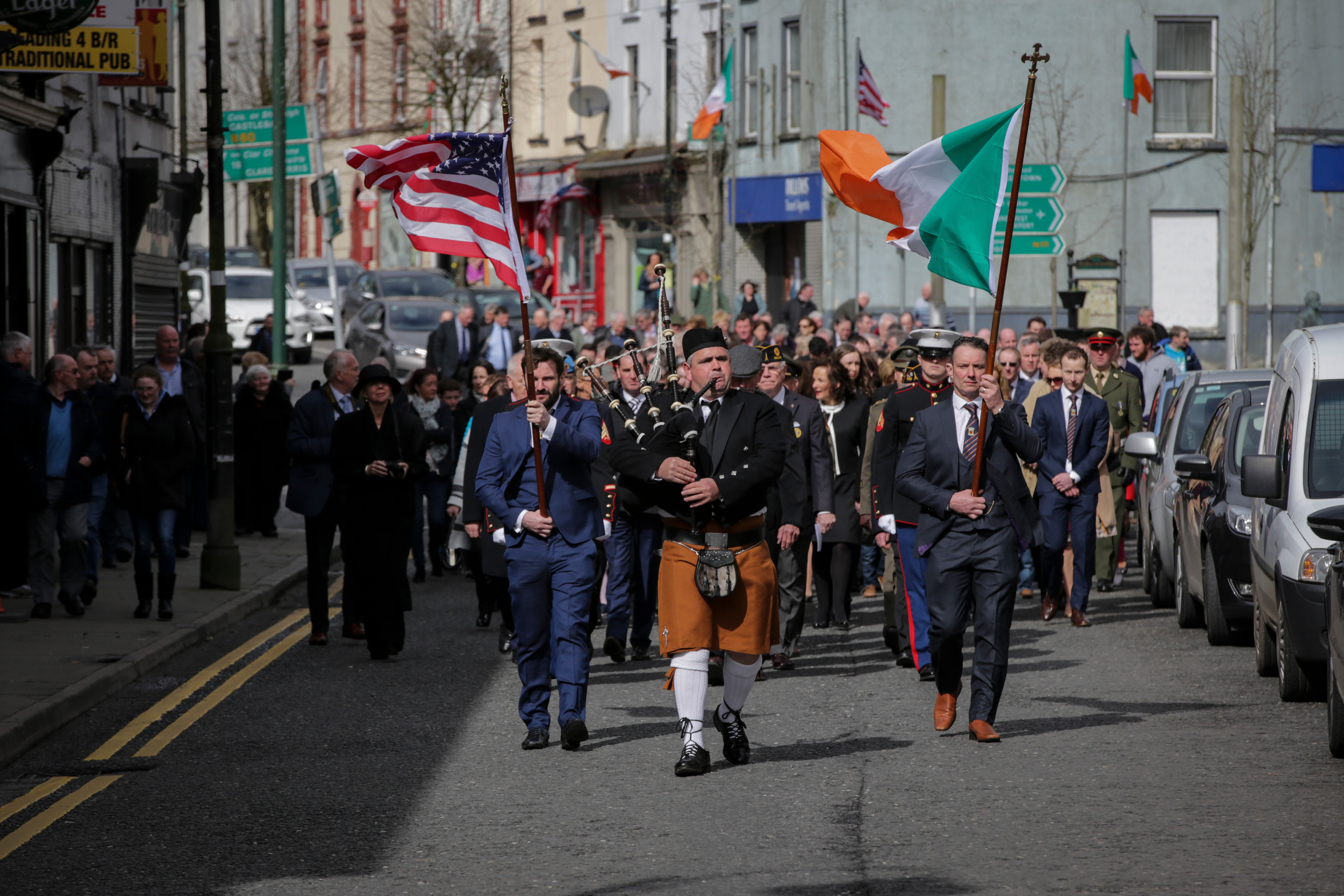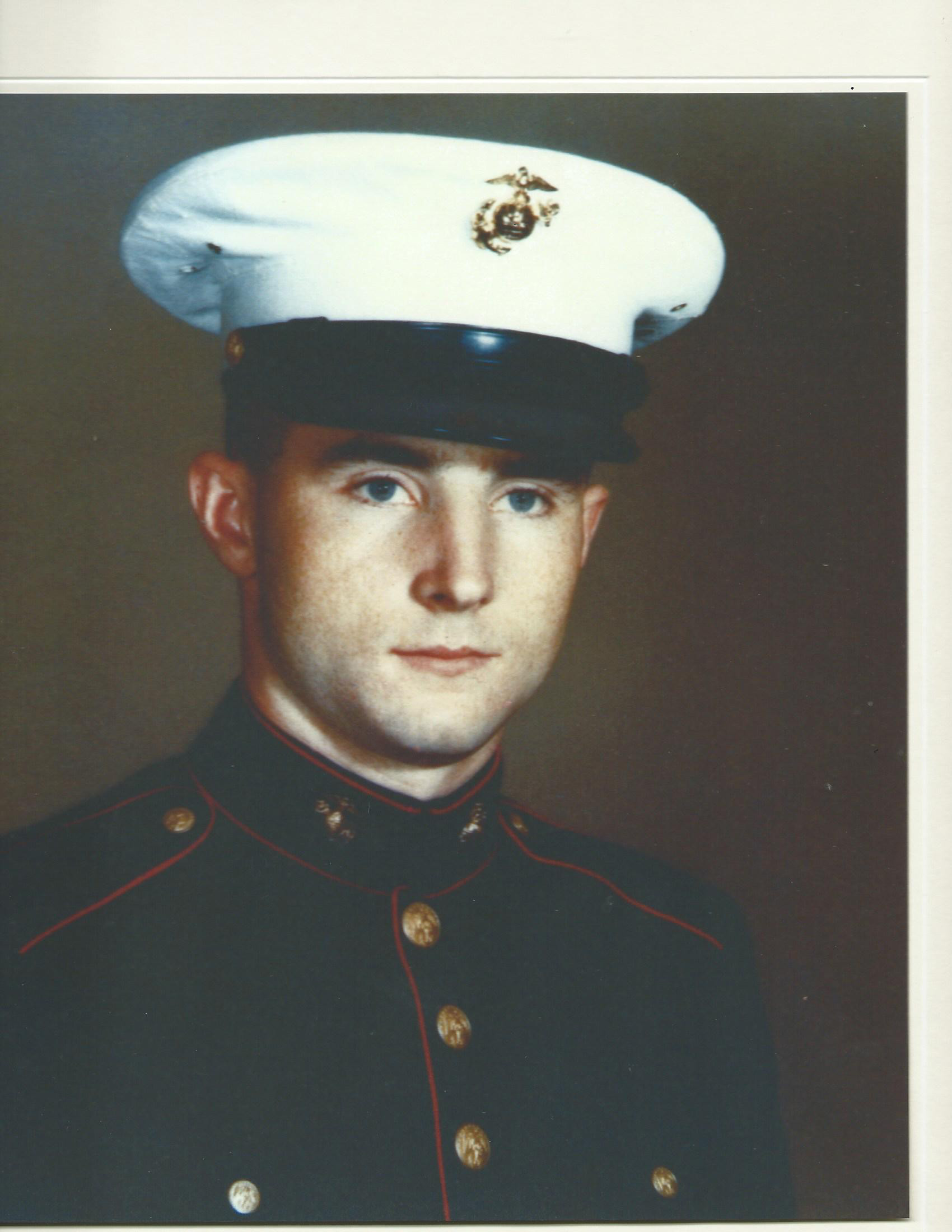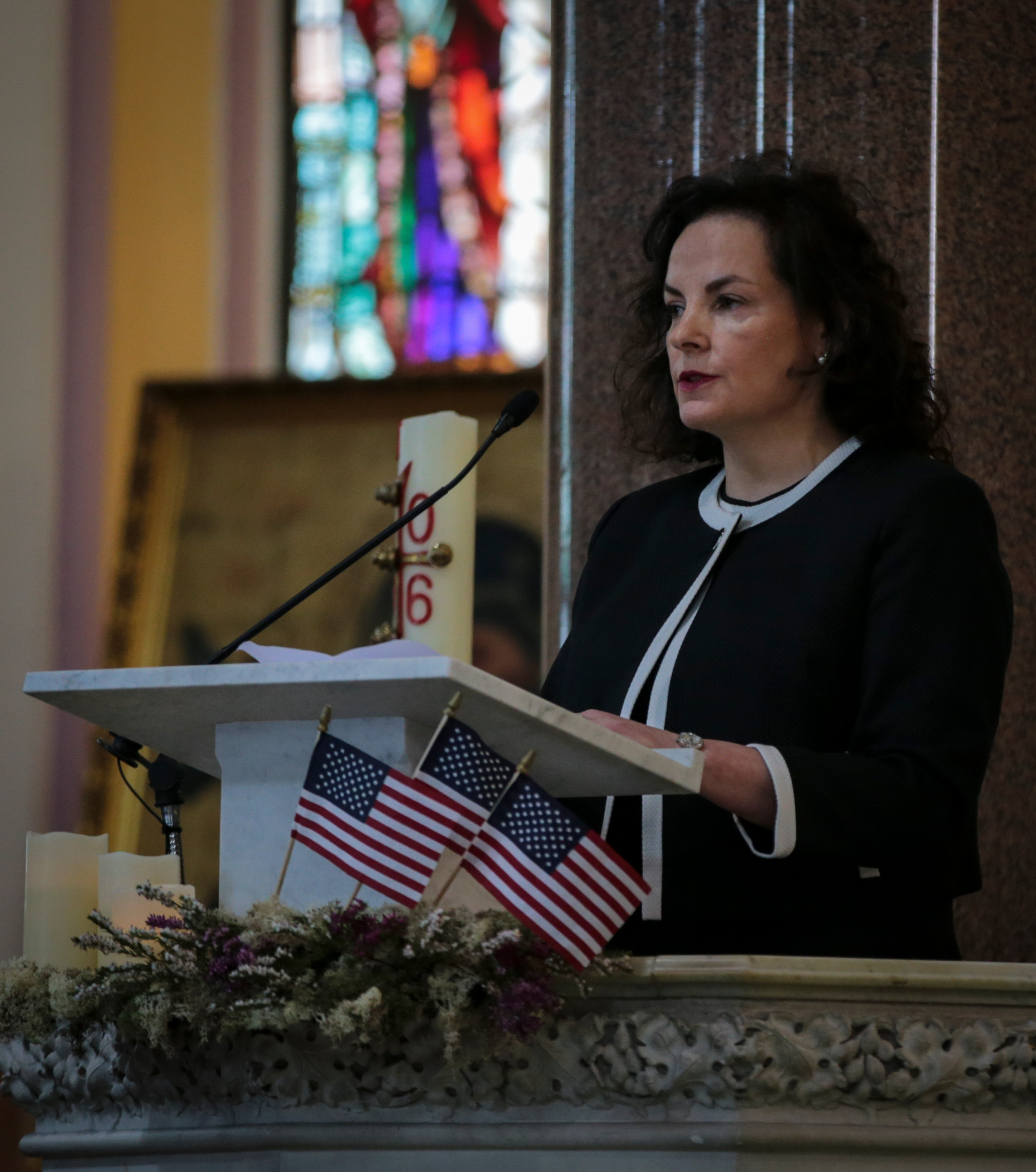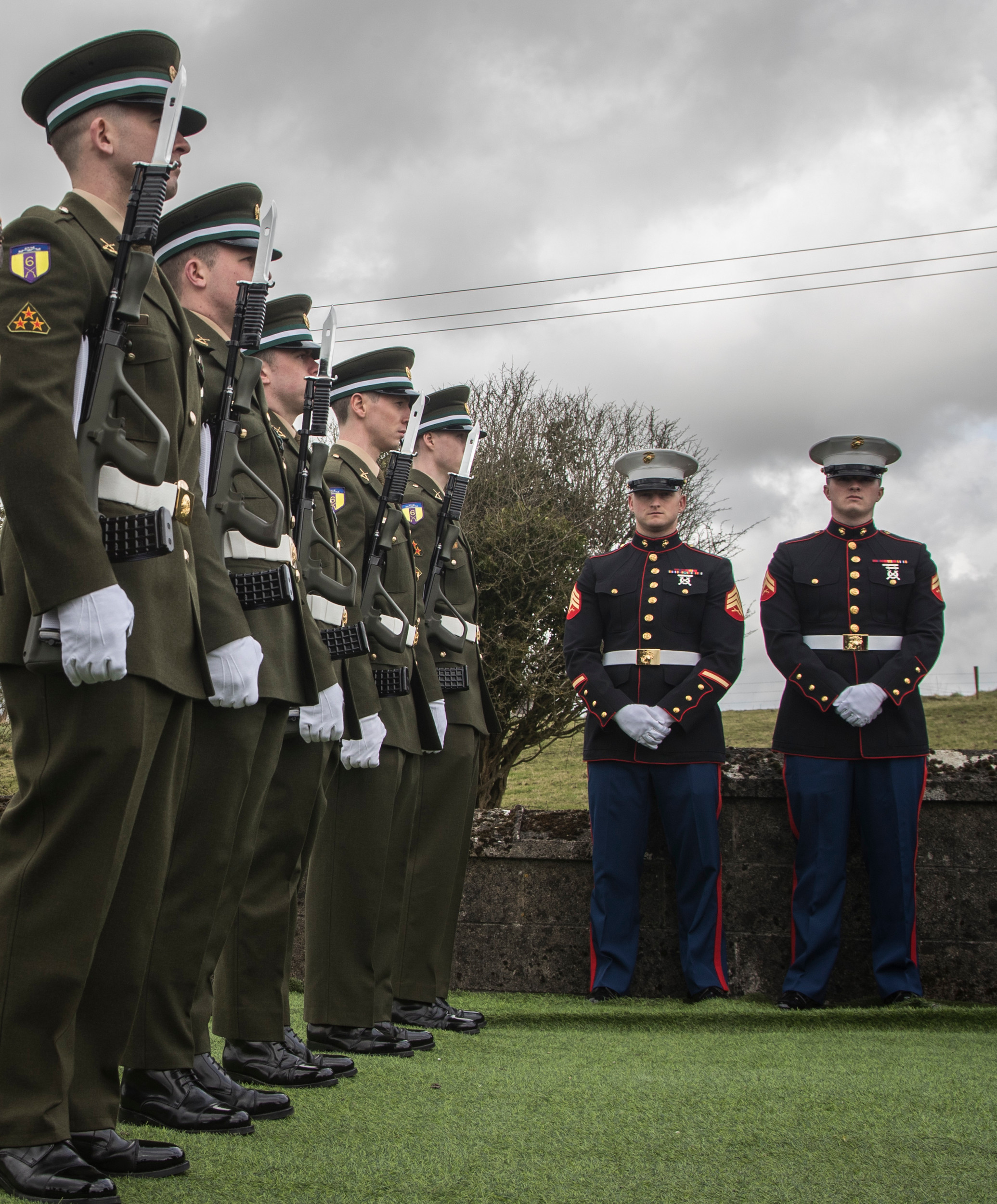Family of man born in Ireland, killed in Vietnam, wants U.S. Navy ship named in his honor

Pauline Gallagher was 3 when her brother Patrick, a hero of the United States military who once made Lynbrook his home, was shot and killed in combat.
Patrick had lived in America for only five years before he was sent to Vietnam, only to be killed while on patrol. He had emigrated from Ireland to the U.S. when he was 18.
Though she has few memories of her older brother, his legacy lives on through the stories of his heroism during the Vietnam War.
One such act earned Patrick the Navy Cross — the second-highest military honor awarded to a member of the U.S. Navy or Marine Corps — when he risked his life to save his comrades in July 1966. While his fellow Marines were sleeping in a bunker, four enemy fighters infiltrated their camp and threw three grenades into their dwelling. Gallagher kicked the first two grenades out, and they detonated at a safe distance. He jumped on the other one and attempted to compress it before throwing it into a nearby river, where it exploded.
“Without hesitation, in a valiant act of self-sacrifice, Corporal Gallagher threw himself upon the deadly grenade in order to absorb the explosion and save the lives of his comrades,” read a citation on the Navy Cross he later received.
“In the beginning, it was like a story,” Pauline recalled. “Then, when you got older, you realized the enormity of what he had done.”
Though he survived the grenade attack, Patrick was shot and killed while on patrol in the town of Da Nang on March 30, 1967. To commemorate his heroic actions and the 50th anniversary of his death, Pauline said that members of her family and other supporters are hoping that the U.S. Navy will name one of its ships in Patrick’s honor.
Martin Durkin, a pilot who grew up in Ballyhaunis, Ireland, heard Gallagher’s story and told Marcus Donnelly, a former Dublin native who owns a bar in Texas, according to Pauline. Inspired by Gallagher’s heroism, they started a petition to have a ship named after him. It has collected more than 8,200 signatures, and Pauline said the goal is to get at least 10,000. “If the ship sails, it will sail for all the Irishmen killed in war,” Pauline said.
The petition can be found at www.ipetitions.com/petition/patrickgallagher.
Living and dying a hero
Patrick was born the second oldest of nine children to Peter and Mary Gallagher in Ballyhaunis on Feb. 1, 1944. When he turned 18, he emigrated to the United States and lived with his sisters, Margaret and Bridie, at his aunt May Burns’s house in Lynbrook.
Patrick worked in carpentry and then in real estate while attending law school. When he joined the Marines, he did not tell his family in Ireland that he was going to Vietnam. His parents and siblings thought he was at a military base in San Diego.
When he learned he would be awarded the Navy Cross, Gallagher wrote to his parents in Ireland, hoping to let them know before the local press broke the news. In the letter, dated Jan. 28, 1967, Gallagher told the harrowing story and explained that he neglected to tell them he was in Vietnam because he did not want to worry them.
“I hope you’re not too mad at me,” he wrote, according to Pauline, who fought back tears while reading the note. “I hope you’re proud of me for getting this great honor.” Afterward, Gallagher was promoted from lance corporal to corporal. A day after his family received the letter, Pauline recalled reporters knocked on their door.
Gallagher wrote that he would return to Ireland in 60 days, and as the day drew near, people in Ballyhaunis prepared to give him a hero’s welcome.
But he died on March 30. He was 23. Pauline said she later found out that her brother was not supposed to be on patrol that day, but volunteered when his commanding officer needed an extra person.
“I remember it was a Sunday when we got the news that he was killed,” Pauline recounted. “The priest came to our house to tell [us] and I can remember that day like it was yesterday.”
On the day Gallagher was supposed to be honored, his parents, siblings and community members buried him instead.
Robert Kennedy, who was a senator at the time, wrote Gallagher’s family a letter after his death, praising his bravery. Gallagher had worked on Kennedy’s campaign team. “… This courage Corporal Gallagher gave to all of us,” Kennedy wrote. “To him and to his family are due the thanks of a humbly grateful nation.”
Gallagher is buried in the Ballyhaunis Cemetery.
When his parents died, they were laid to rest next to him.
Celebrating his life
The 50th anniversary of Gallagher’s death was commemorated on March 30 with a big event in Ireland. “It was the hero’s welcome that he should have gotten 50 years ago,” Pauline said.
The occasion started with a Mass in honor of Gallagher and others who had lost their lives in the military. The flags of Ireland and the U.S. lined the church, Pauline said, and members of the Irish Defense Forces and U.S. military appeared in uniform. It was followed by a parade with a piper who led about 600 people to Gallagher’s gravesite, and a monument in his honor was unveiled.
The celebration then continued to the Augustinian Abbey in Ballyhaunis, where items including Gallagher’s letters, uniforms and medals were on display, along with pictures of him.
Pauline attended with her three surviving siblings and her nieces and nephews.
“It was amazing that so much was kept for 50 years, and we were glad to be able to share it with all the people who had shared with us the loss of our brother,” she said. “We are very grateful to the town and the people for keeping his memory alive.”
Pauline remains hopeful that the Navy will name a ship in her brother’s honor.
“If the ship were named after my brother, it would stand for all Irishman who were killed in war,” she said. “The Irish have a long history in foreign wars and under different flags, and we would see it as a great honor for everybody.”

 47.0°,
Fair
47.0°,
Fair 









